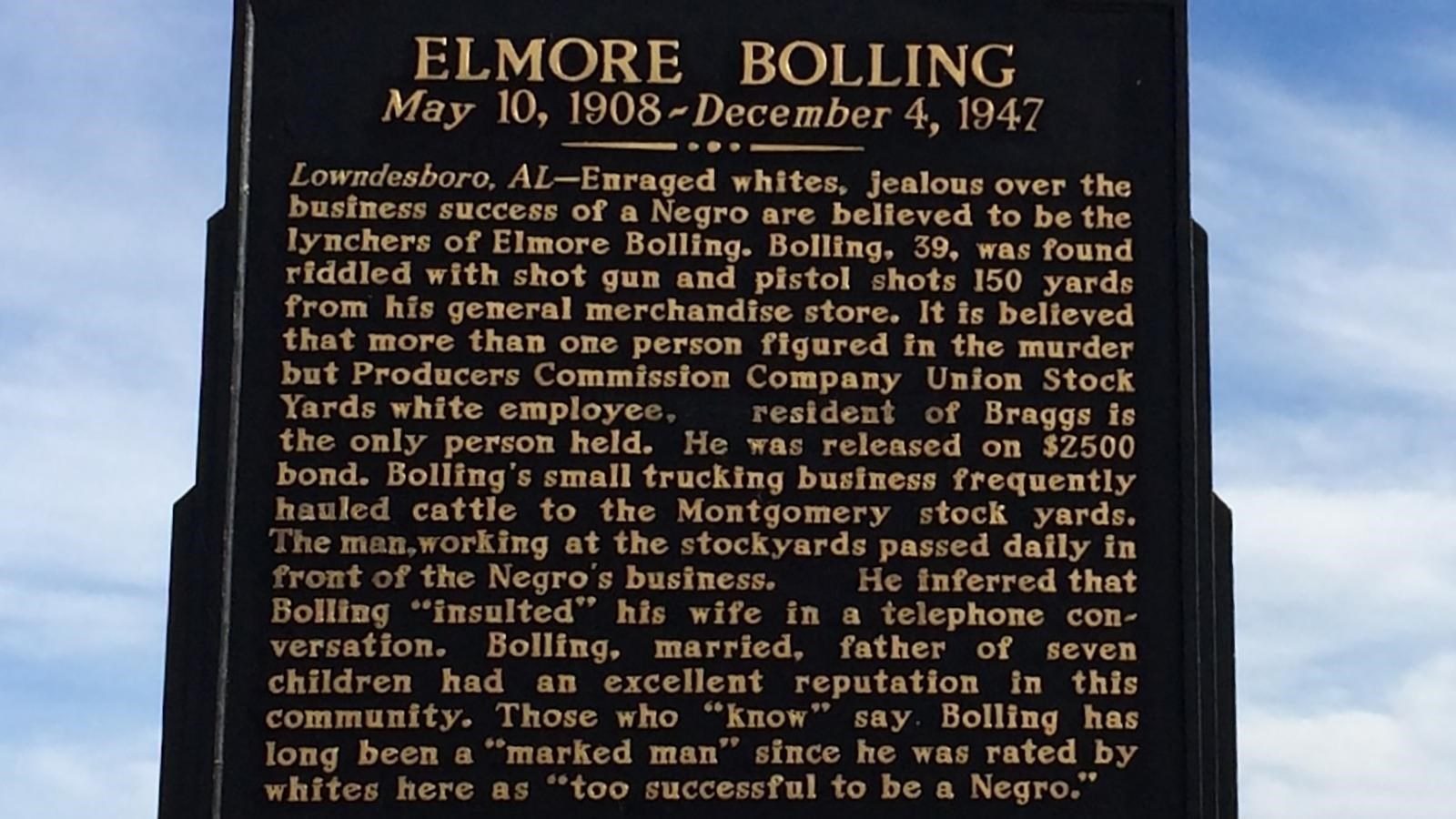Last updated: April 22, 2025
Place
Elmore Bolling Marker

NPS Photo, BrittanyAnn Robinson
The Elmore Bolling Marker honors the life of Elmore Bolling, a remarkable African American entrepreneur, philanthropist, and community leader in Lowndes County, Alabama. Beginning in 1931, with just a mule and a wagon, Bolling built a successful business empire, including a livestock hauling service, a general store, and a fleet of trucks that provided transportation and employment opportunities for many Black residents. Known for his generosity, Bolling helped his community by providing loans, canceling debts if people could not pay, and offering rides in his passenger truck to those in need. On Sundays, Bolling would transport people from the community to different churches around the county. Elmore’s wife, Bertha, and their seven children would prepare food and refreshments and offer them for sale to his passengers, including ice cream. Elmore Bolling offered his services to African Americans and whites alike, and his reliable reputation gained him notoriety with all people. Despite being unable to read or write, he prioritized education by ensuring that his children attended school, even during the off-season, for sharecropping.
Bolling’s success made him a prominent figure in the Black community but also drew the ire of white residents who resented his achievements. On December 4, 1947, Bolling was shot and killed by a white man, an act fueled by jealousy over his economic prosperity. His death was a stark reminder of the violent racism that pervaded the South. Despite clear evidence of a racially motivated crime, no one was ever held accountable. Following his murder, Bolling’s assets became unlawfully seized by local whites, who claimed Elmore owed them money, plunging his family into poverty.
Bolling’s success made him a prominent figure in the Black community but also drew the ire of white residents who resented his achievements. On December 4, 1947, Bolling was shot and killed by a white man, an act fueled by jealousy over his economic prosperity. His death was a stark reminder of the violent racism that pervaded the South. Despite clear evidence of a racially motivated crime, no one was ever held accountable. Following his murder, Bolling’s assets became unlawfully seized by local whites, who claimed Elmore owed them money, plunging his family into poverty.
